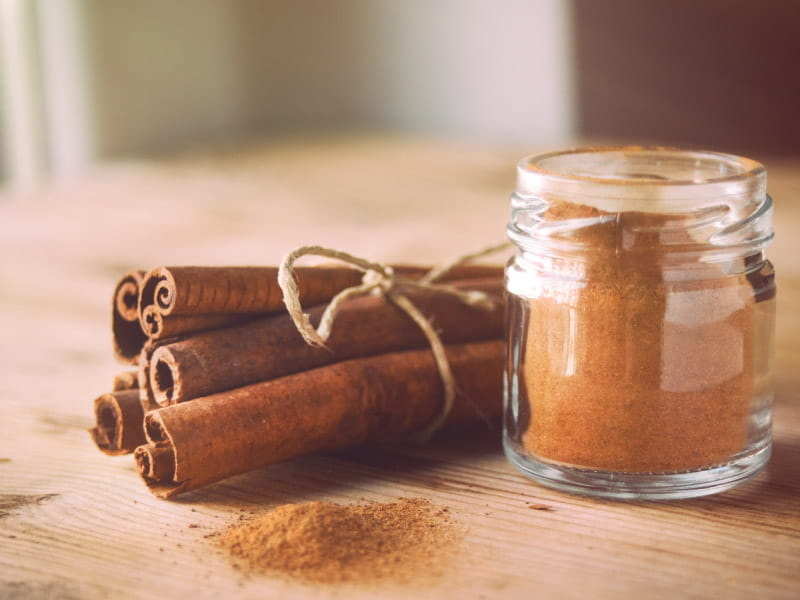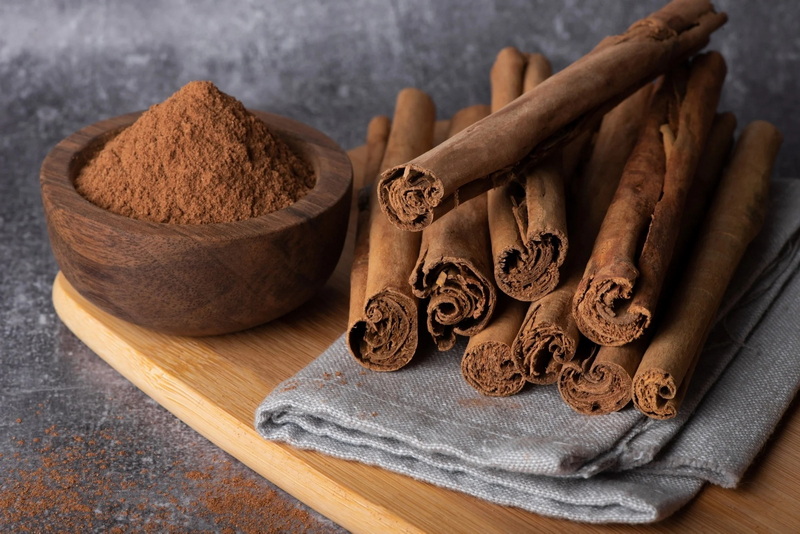Content Menu
● Introduction to Cinnamon and Diabetes
>> Cinnamon Bark Extract Tea Benefits
>> Cinnamon and Blood Sugar Management
● Mechanisms Behind Cinnamon's Effects
● Cinnamon Bark Extract Tea Preparation
● Potential Risks and Considerations
● Integrating Cinnamon into a Diabetes Prevention Plan
● Lifestyle Modifications for Diabetes Prevention
● Conclusion
● FAQs
>> 1. What are the primary benefits of cinnamon bark extract tea for diabetes prevention?
>> 2. How does cinnamon affect insulin sensitivity?
>> 3. Can cinnamon interact with diabetes medications?
>> 4. What is the recommended dosage of cinnamon for blood sugar management?
>> 5. Are there any potential side effects of consuming cinnamon bark extract tea?
● Citations:
Cinnamon, a spice derived from the bark of the cinnamon tree, has been widely recognized for its potential health benefits, particularly in managing blood sugar levels. The question of whether drinking cinnamon bark extract tea can reduce the risk of diabetes is intriguing and warrants a closer examination of the available evidence.

Introduction to Cinnamon and Diabetes
Cinnamon is known for its rich content of bioactive compounds, including polyphenols, which are believed to contribute to its health benefits. These compounds have been shown to have antioxidant, anti-inflammatory, and insulin-sensitizing properties, all of which are crucial in the management and prevention of diabetes.
Cinnamon Bark Extract Tea Benefits
1. Antioxidant Properties: Cinnamon bark extract tea is rich in antioxidants, which help protect the body from oxidative stress and inflammation, factors that are linked to the development of diabetes.
2. Insulin Sensitivity: Studies suggest that cinnamon can improve insulin sensitivity, allowing glucose to enter cells more efficiently and reducing blood sugar levels.
3. Anti-inflammatory Effects: The anti-inflammatory properties of cinnamon may also play a role in reducing inflammation associated with insulin resistance and diabetes.
4. Glucose Metabolism: Cinnamon has been shown to influence glucose metabolism by slowing the absorption of glucose from the intestine, thereby reducing postprandial blood glucose spikes.
5. Cardiovascular Health: Cinnamon may also contribute to cardiovascular health by lowering cholesterol levels and improving blood lipid profiles, which are important for reducing the risk of complications associated with diabetes.
Cinnamon and Blood Sugar Management
Several studies have explored the impact of cinnamon on blood sugar levels. For instance, a study involving nondiabetic adults found that cinnamon tea significantly decreased postprandial maximum glucose levels. Another study demonstrated that cinnamon extract could lower fasting glucose and improve insulin resistance in individuals with type 2 diabetes.
Mechanisms Behind Cinnamon's Effects
The mechanisms by which cinnamon affects blood sugar levels are multifaceted:
- Insulin Mimetic Action: Cinnamon's polyphenols may mimic insulin, facilitating glucose uptake by cells.
- Reduced Gastric Emptying: Cinnamon can slow gastric emptying, leading to a slower absorption of glucose and reduced postprandial spikes.
- Inhibition of Intestinal Glycosidases: This action reduces the breakdown of carbohydrates into glucose, further slowing glucose absorption.
Cinnamon Bark Extract Tea Preparation
Preparing cinnamon bark extract tea is straightforward:
1. Ingredients:
- Cinnamon bark, water.
2. Instructions:
- Boil water and add cinnamon bark (about 1-2 teaspoons per cup).
- Steep for 5-10 minutes.
- Strain and drink.

Potential Risks and Considerations
While cinnamon bark extract tea is generally considered safe, there are some potential risks and considerations:
- Allergic Reactions: Some individuals may be allergic to cinnamon.
- Interactions with Medications: Cinnamon can interact with certain medications, such as blood thinners.
- Dosage: High doses of cinnamon can cause side effects like stomach upset.
Integrating Cinnamon into a Diabetes Prevention Plan
For those interested in using cinnamon as part of a diabetes prevention plan, it's important to consider the following:
- Dietary Changes: Combine cinnamon consumption with a balanced diet that includes plenty of fruits, vegetables, whole grains, and lean proteins.
- Physical Activity: Regular exercise can enhance insulin sensitivity and improve overall health.
- Monitoring Blood Sugar: Regularly monitor blood sugar levels to assess the effectiveness of cinnamon and other interventions.
Replace the URL with an actual image of a balanced diet for diabetes prevention.
Lifestyle Modifications for Diabetes Prevention
In addition to incorporating cinnamon into your diet, several lifestyle modifications can further reduce the risk of developing diabetes:
- Weight Management: Maintaining a healthy weight can significantly reduce the risk of type 2 diabetes.
- Stress Reduction: Chronic stress can exacerbate insulin resistance; practices like yoga or meditation can help manage stress levels.
- Sleep Quality: Adequate sleep is crucial for maintaining metabolic health and insulin sensitivity.
Conclusion
Drinking cinnamon bark extract tea may offer benefits in reducing the risk of diabetes by improving insulin sensitivity, lowering blood sugar levels, and providing antioxidant protection. However, it is essential to consult with healthcare professionals before using cinnamon as a preventive measure, especially for those with existing health conditions or taking medications.

FAQs
1. What are the primary benefits of cinnamon bark extract tea for diabetes prevention?
Cinnamon bark extract tea is beneficial for diabetes prevention due to its ability to improve insulin sensitivity, reduce postprandial glucose spikes, and provide antioxidant protection.
2. How does cinnamon affect insulin sensitivity?
Cinnamon enhances insulin sensitivity by mimicking insulin's action, facilitating glucose uptake into cells, and potentially increasing insulin receptor activity.
3. Can cinnamon interact with diabetes medications?
Yes, cinnamon can interact with certain medications, such as blood thinners, and may enhance the effects of diabetes medications, so it's crucial to consult with a healthcare provider.
4. What is the recommended dosage of cinnamon for blood sugar management?
The recommended dosage varies, but common studies use between 1 to 6 grams of cinnamon per day. However, it's important to consult with a healthcare provider for personalized advice.
5. Are there any potential side effects of consuming cinnamon bark extract tea?
While generally safe, high doses of cinnamon can cause stomach upset, and some individuals may experience allergic reactions. It's also important to monitor interactions with other medications.
Citations:
[1] https://pmc.ncbi.nlm.nih.gov/articles/PMC4516848/
[2] https://pmc.ncbi.nlm.nih.gov/articles/PMC4702386/
[3] https://pmc.ncbi.nlm.nih.gov/articles/PMC2901047/
[4] https://pmc.ncbi.nlm.nih.gov/articles/PMC5067830/
[5] https://www.healthline.com/nutrition/cinnamon-and-diabetes
[6] https://pmc.ncbi.nlm.nih.gov/articles/PMC10494518/
[7] https://www.webmd.com/diabetes/cinnamon-and-benefits-for-diabetes
[8] https://patents.google.com/patent/CN104640555A/zh






























